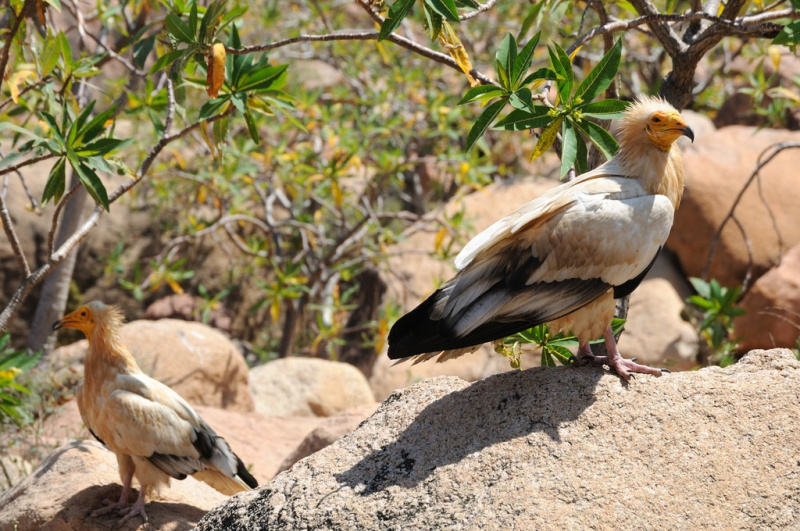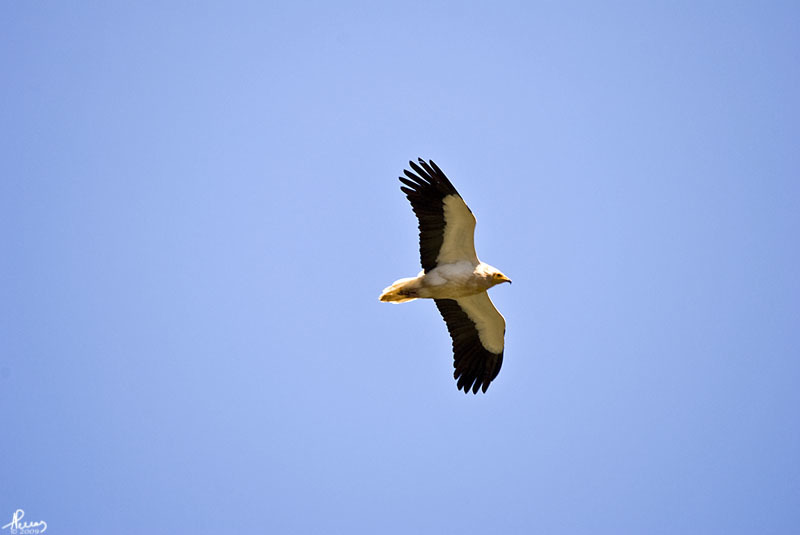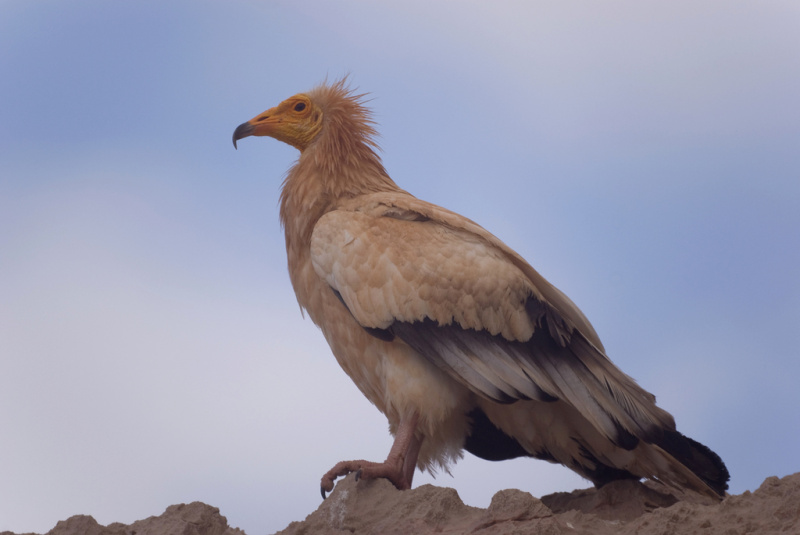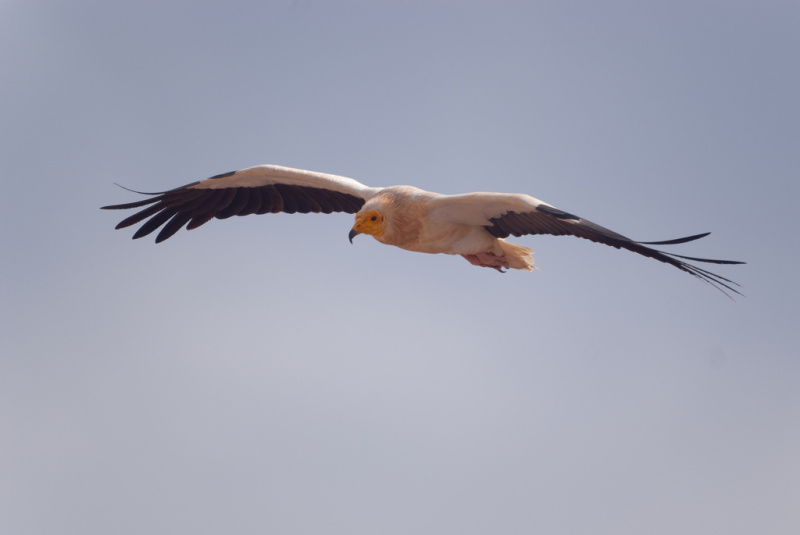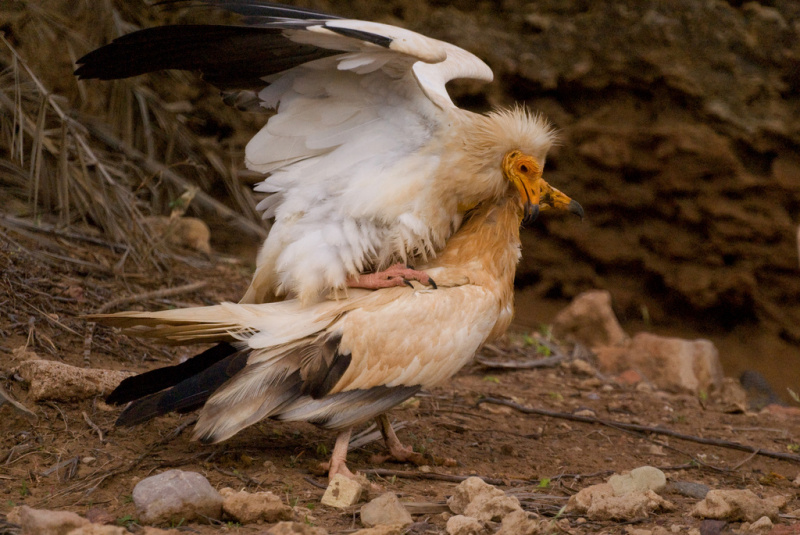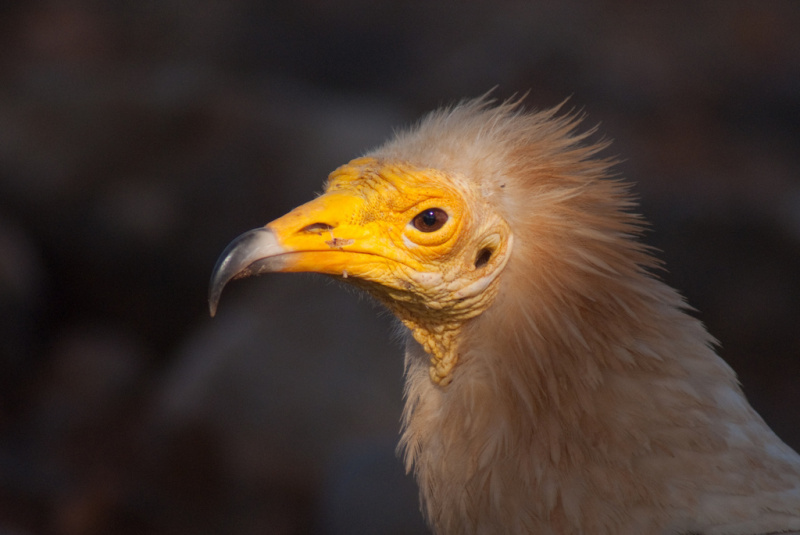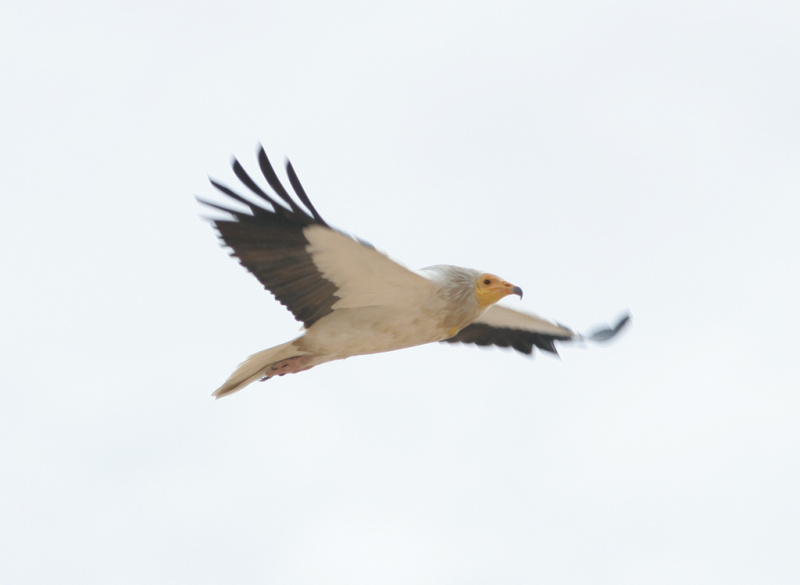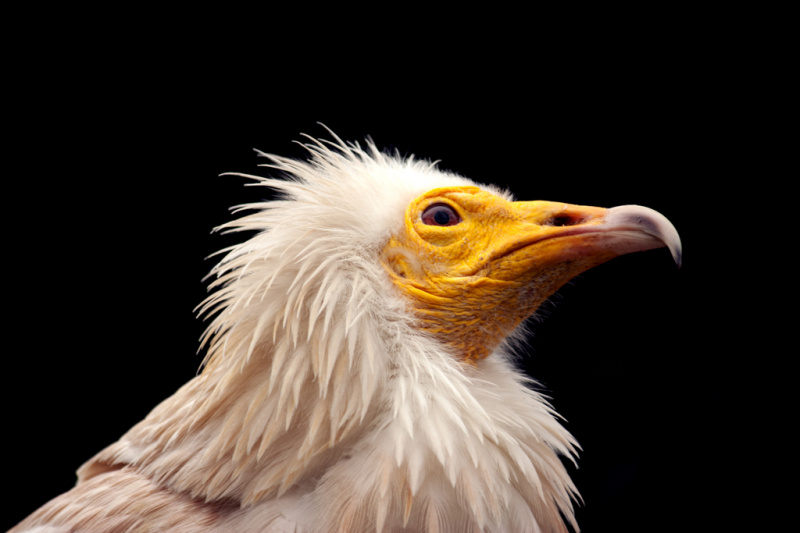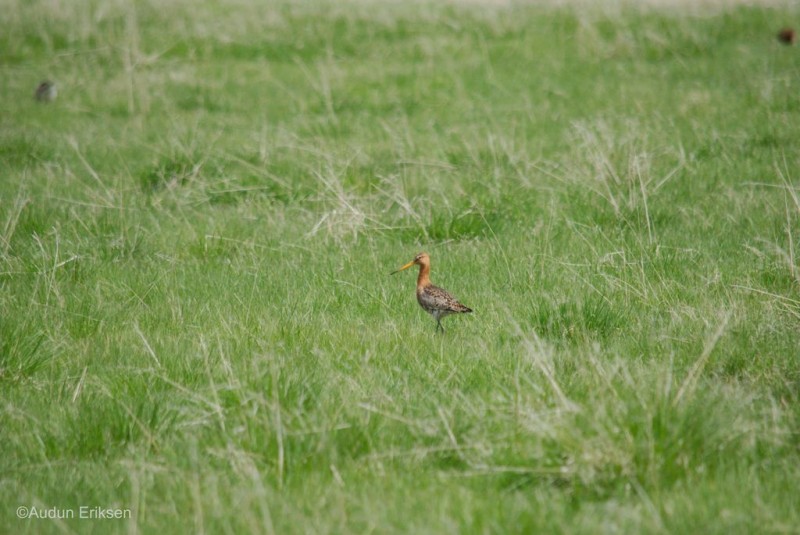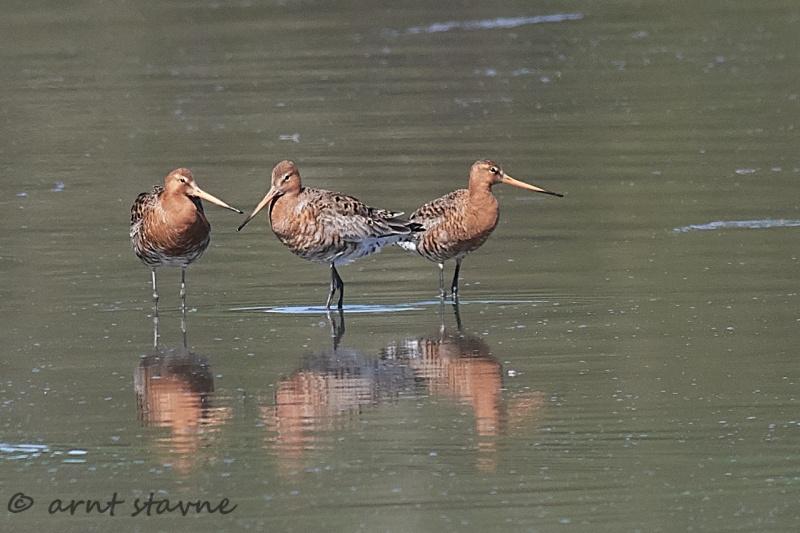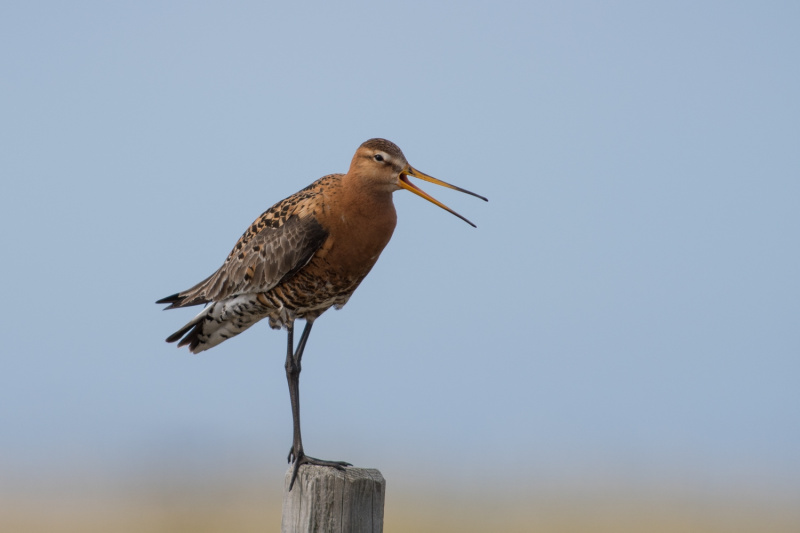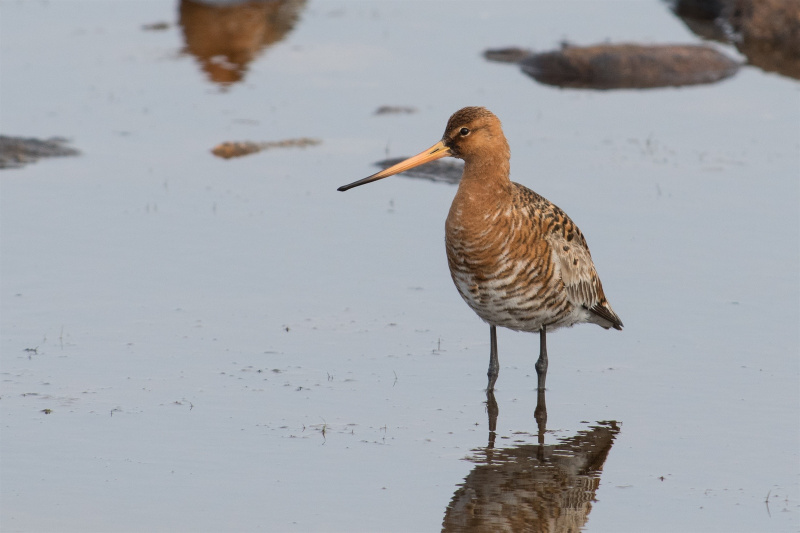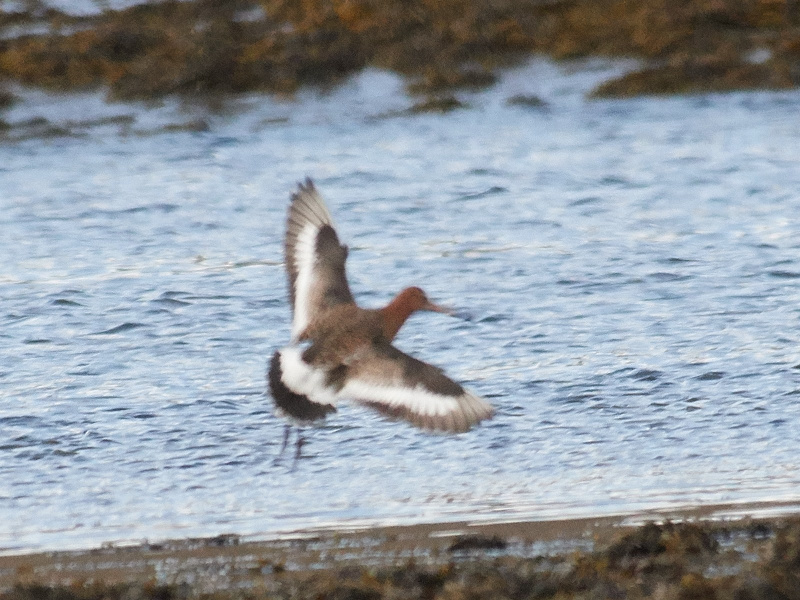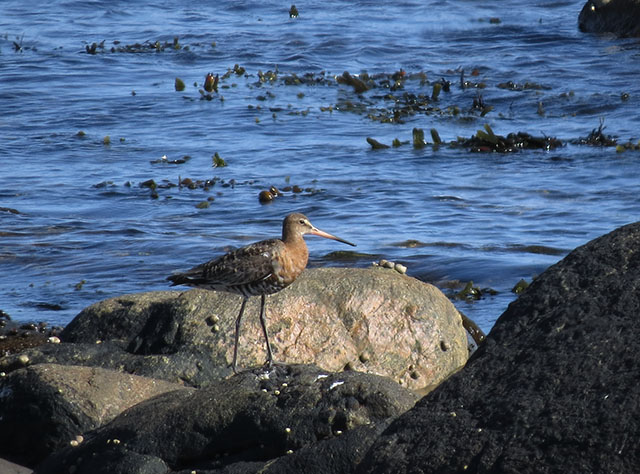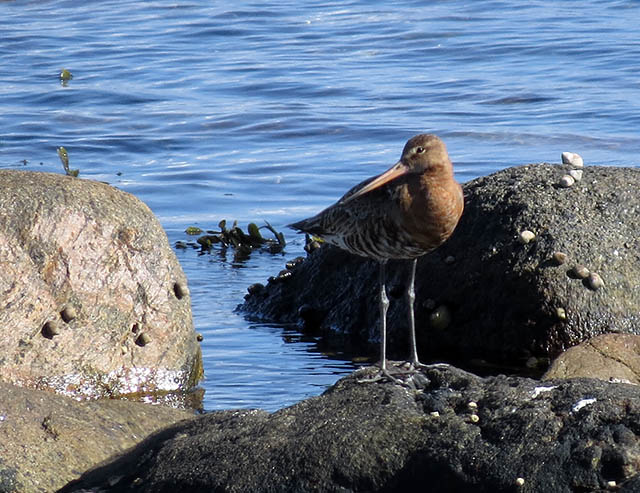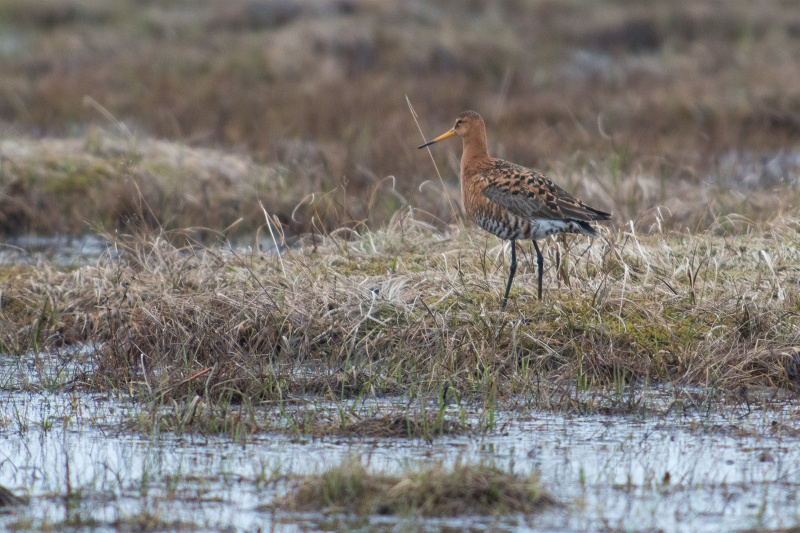Egyptian Vulture (Neophron percnopterus)
Black-tailed Godwit (Limosa limosa)
Small vulture with characteristic flight profile, and distinct plumage with white body, white coverts and black flight feathers (in adults). Long, wedge-shaped tail, but not longer than wings are broad (as opposed to Lammergeier). Wings square with broad, full hand (slightly pointed in Lammergeier). Small head with thin bill. At long distance plumage of adults slightly similar to White Pelican, White Stork and pale Booted Eagles, but note wedge-shaped tail. Immature birds dark brown with paler coverts. Despite the less distinct plumage, the silhouette is similar to adults. Noticeably more active wing flapping and quicker wing-beats than in the large vultures.
Sound:Almost never heard. May emit different grunting sounds and a slightly mallard-like "ga ga ga ga ga ga ga".
Distribution:Wikipedia: map (se also Xeno-canto below)
Ecology:Birdlife ecology
Links:
Observation.org Latest observations
Image search Flickr NB! May give other species
CCMost likely to be confused with Bar-tailed Godwit, but easily recognized in flight by its contrasting black and white wings and tail. More difficult to identify when not flying. Generally much leggier, more elegant and upright than Bar-tailed, and with straighter bill. Tibia especially long. Summer plumage with barred/spotted belly (never in Bar-tailed), and orange base of bill. Juveniles with scaled back, not arrow-shaped streaking. Adult winter with mainly uniformly grey plumage, and short supercilium not reaching behind the eye.
Sound:Quite vocal at breeding ground, but mostly silent elsewhere. Varied repertoire of mewing and sharp sounds, some resembling Bar-tailed, some almost lapwing-like. Most characteristic call is the display call; a sharp and mewing, rhythmic "kew-ku-weeewee". Generally the calls are evenly accentuated (as opposed to Bar-tailed).
Display call and contact calls:
Distribution:
Wikipedia: map (se also Xeno-canto below)
Ecology:Birdlife ecology
Links:
Observation.org Latest observations
Image search Flickr NB! May give other species
CCSounds:Recorded by Patrick Åberg,http://www.xeno-canto.org ,CC license

 English
English Albanian
Albanian
 Armenian
Armenian
 Bulgarian
Bulgarian
 Catalan
Catalan
 Croatian
Croatian
 Czech
Czech
 Danish
Danish
 Dutch
Dutch
 Finnish
Finnish
 French
French
 Georgian
Georgian
 German
German
 Greek
Greek
 Hungarian
Hungarian
 Italian
Italian
 Latvian
Latvian
 Lithuanian
Lithuanian
 Macedonian
Macedonian
 Norwegian
Norwegian
 Polish
Polish
 Portuguese
Portuguese
 Romanian
Romanian
 Russian
Russian
 Sami : Lule sami
Sami : Lule sami
 Sami : North sami
Sami : North sami
 Sami : South sami
Sami : South sami
 Scientific names
Scientific names
 Serbian
Serbian
 Spanish
Spanish
 Swedish
Swedish
 Ukrainian
Ukrainian


